What Happens During a Panic Attack

Your body's "fight or flight" response kicks into high gear. It can seem to come from nowhere -- maybe as you walk down the street or do the laundry. It can even wake you out of a sound sleep. There's often no obvious reason for your combination of symptoms. That's part of why it's called an "attack." It can be so sudden and intense that you feel helpless, unable to move or think clearly.
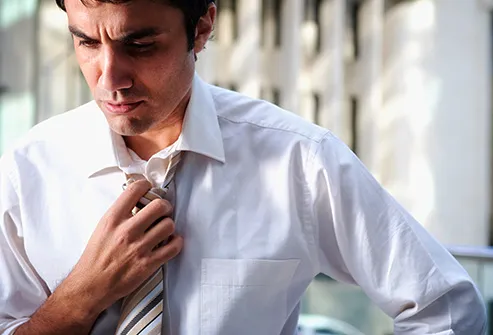
A jolt of adrenaline gets your heart racing or pounding -- or both. Your chest might hurt. You could even have trouble breathing.
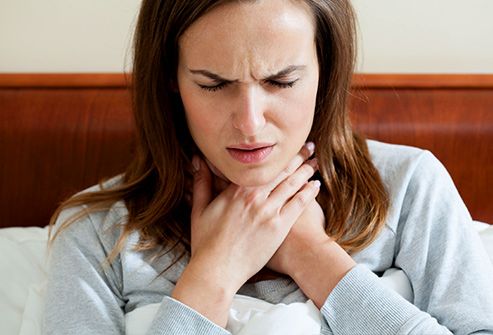
Your throat tightens up, and you can't swallow. Or you might think you're going to throw up. These feelings can make it harder to catch your breath.

We're not talking about the fear you feel in the normal course of life, when you stand on the edge of a cliff, bring up a difficult subject, or start a new job, for example. During a panic attack, you may have an overwhelming sense that something really terrible is about to happen -- or that you're going to die -- despite knowing it's not true.
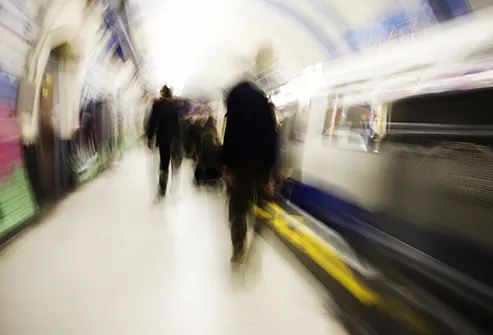
Sometimes you can get so lightheaded that the whole room starts to spin. Or it seems like you're disconnected from your surroundings.
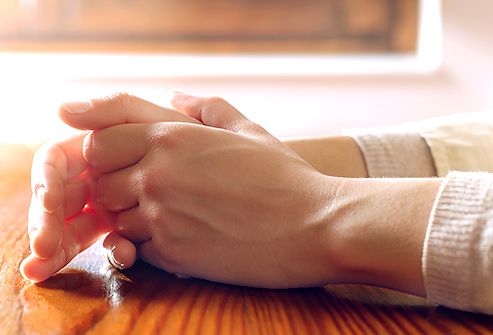
This classic sign of anxiety can also be a symptom of a panic attack. You may sweat in other places, like under your arms, as well -- sometimes quite a lot. And you could get chills or hot flashes, too.
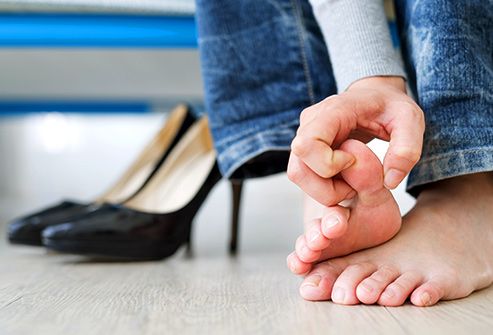
Your whole body may start shaking. With blood going to your heart and muscles, your fingers or toes can tingle or go numb.
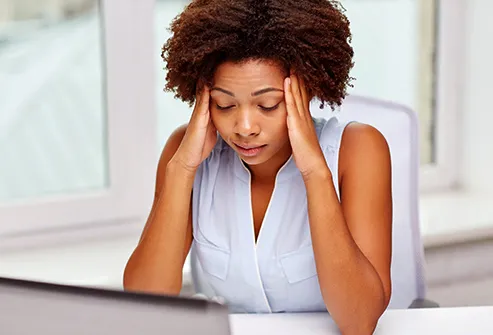
One can come on suddenly, and it may be gone just as quickly. Like the other symptoms, this alone doesn't necessarily mean you're having a panic attack.
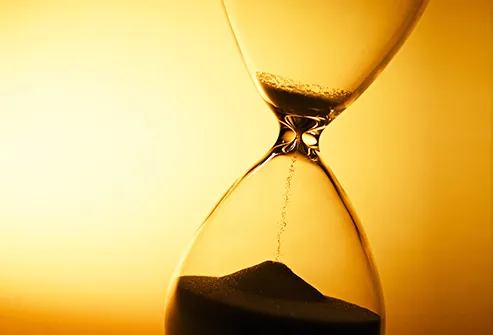
A panic attack usually hits all at once and builds to a peak in about 10 minutes. Then you'll slowly start to feel better. Attacks rarely last more than an hour, and most are over in 20 or 30 minutes. They aren't always the same.
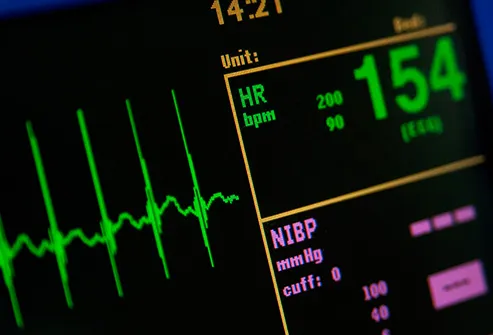
The symptoms are similar: Chest pain, breathing problems, dizziness, sweating, even the feeling of losing control. If it's the first time you've felt like this, and you or a close family member have had any heart problems, go to the emergency room -- just to be safe.

You probably don't need to worry if you have just one or two incidents and they go away without other problems. But more often than that, or if you're concerned, you should see your doctor. He can help you figure out what's triggering your attacks and how to manage them. He'll also want to rule out a heart condition call mitral valve prolapse.
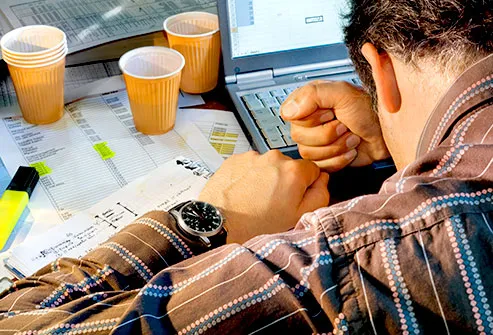
Panic attacks tend to run in families and are often related to stress. Sometimes, there's a physical reason: Your thyroid gland makes too much hormone. You don't have enough sugar in your blood. You drank too much caffeine, or you took a stimulant drug like amphetamines or cocaine. Or you're abusing or withdrawing from drugs or alcohol.

If your doctor can't find a physical cause yet you keep getting panic attacks, you may have panic disorder, especially when you can't stop worrying about the next one coming. You may change the way you live day-to-day to avoid them.
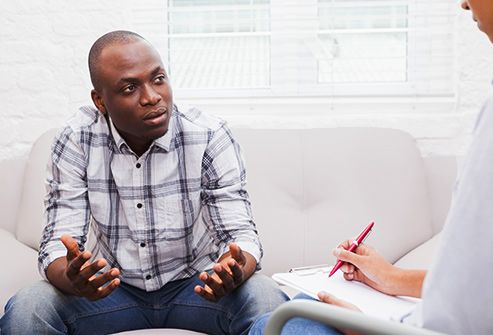
The first step is what you're doing now: understand what's going on. When you realize that it's unlikely to hurt you, only lasts a few minutes, and happens to other people, too, you may be less worried about it. Simply knowing that there are ways to treat them, including therapy and medication, can be a relief.

Anxiety thrives when you feel alone. It's best to see family and friends in person, but by phone or computer is better than nothing. If you don't have people to turn to, consider joining social groups, like a book club or sports league, to meet folks with common interests and start building relationships.
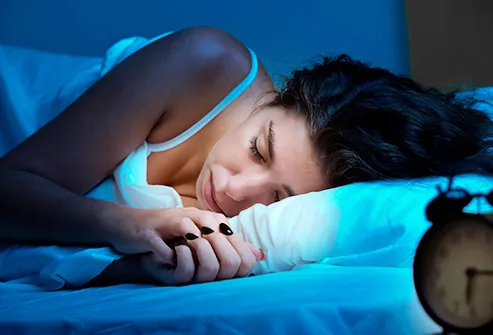
Aim for 7-9 hours a night. If you have trouble going to sleep, keep your room cool, dark, and quiet. Don't watch TV or use the computer or your smartphone right before bed. It also helps to go to sleep and wake up at the same time every day, even weekends.

Get 30 minutes on most days -- even if it's 10 minutes at a time -- and you're less likely to be stressed. That can lower your odds of having a panic attack. Any exercise helps, but it's better if you do activities that move both your arms and legs in rhythm: walk, run, swim, dance.

They can cause panic attacks or make one worse, if you get them regularly. Lots of medications -- including allergy pills, diet pills, and cold medicines -- have drugs in them that could have a similar effect. Talk to your doctor if you need help cutting these things out of your life.
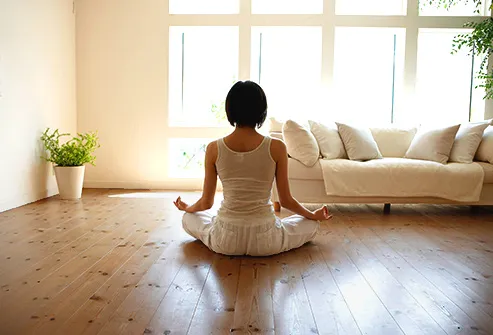
Techniques like meditation and yoga can help you release tension and train yourself to be at peace and centered. Deep, controlled breathing is a great way to calm yourself down when you feel on edge with attack symptoms coming on.